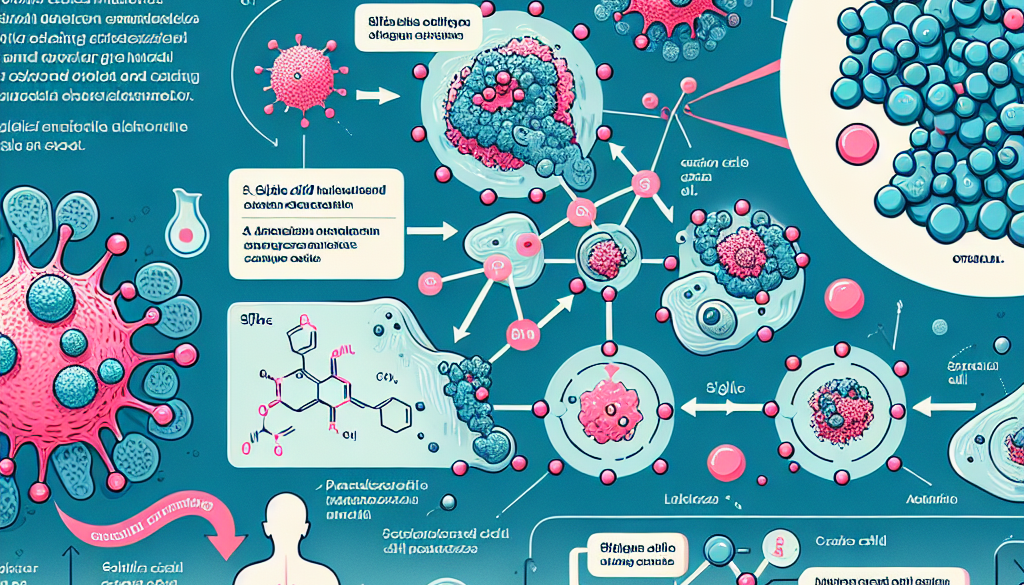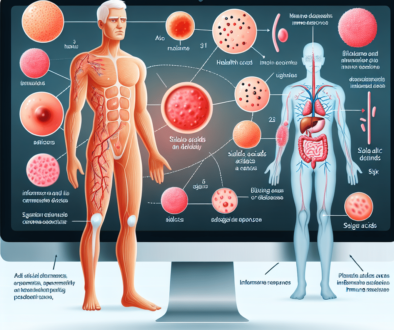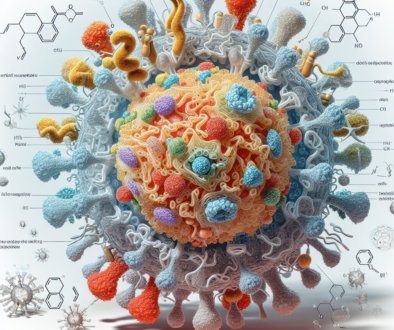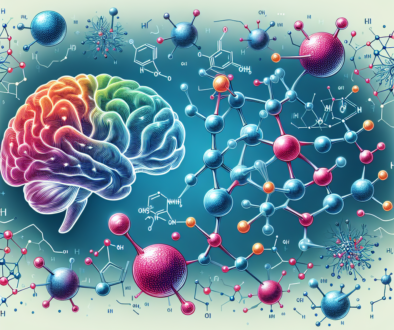Sialic Acid: The Cancer Connection Explained
-
Table of Contents
- Sialic Acid and Cancer: Unraveling the Molecular Link
- Understanding Sialic Acid
- The Cancer Connection
- Immune System Evasion
- Facilitating Metastasis
- Cell Survival and Proliferation
- Inflammation and Cancer
- Diagnostic and Therapeutic Implications
- Sialic Acid as a Biomarker
- Targeted Therapies
- Enhancing Current Treatments
- Case Studies and Statistics
- Conclusion: Key Takeaways
- Discover ETprotein’s High-Quality Protein Products
Sialic Acid and Cancer: Unraveling the Molecular Link
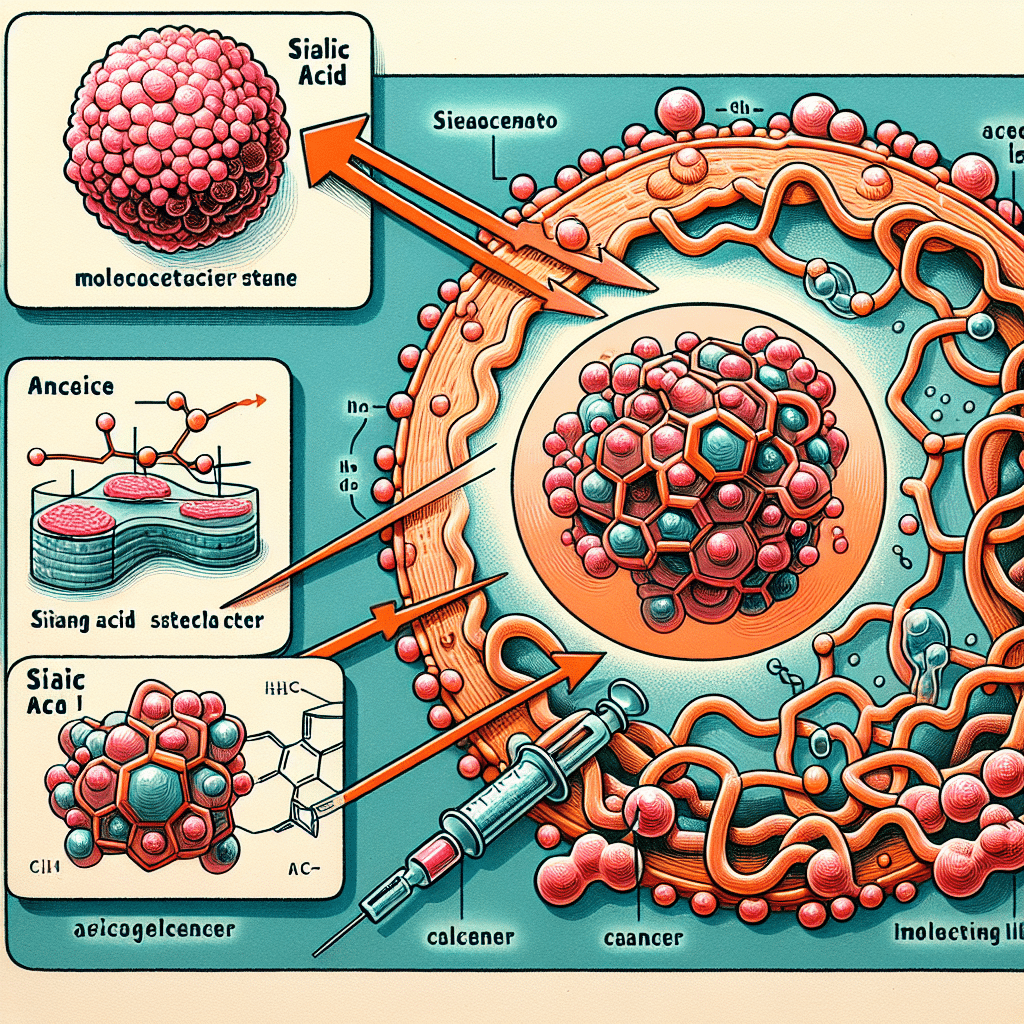
Cancer remains one of the most challenging diseases of our time, with millions of new cases diagnosed annually worldwide. Despite significant advances in understanding the disease, the quest for more effective treatments and diagnostics continues. One area of research that has garnered attention is the role of sialic acid in cancer progression. This article delves into the complex relationship between sialic acid and cancer, exploring how this molecule influences tumor behavior and the potential it holds for future cancer therapies.
Understanding Sialic Acid
Sialic acid is a term used to describe a family of more than 50 different derivatives of neuraminic acid. These sugars are found at the outermost position on glycan chains of glycoproteins and glycolipids, which are present on the surfaces of all vertebrate cells and many bacteria. Sialic acids play a crucial role in various biological processes, including cell-cell communication, immunity, and pathogen recognition.
The Cancer Connection
Research has shown that sialic acid levels are often altered in cancer cells. These alterations can affect the behavior of cancer cells in several ways:
- Masking of tumor cells from the immune system
- Promotion of metastasis
- Enhancement of cell survival
- Regulation of inflammation
Let’s explore each of these aspects in more detail.
Immune System Evasion
Cancer cells often exploit sialic acid to evade the immune system. By increasing the expression of sialic acid on their surface, cancer cells can mask themselves from immune cells. This “shield” prevents the immune system from recognizing and destroying the cancer cells, allowing the tumor to grow and spread unchecked.
Facilitating Metastasis
Metastasis, the spread of cancer from one part of the body to another, is a leading cause of cancer-related deaths. Sialic acid plays a role in this process by enhancing the adhesive properties of cancer cells. This stickiness allows cancer cells to detach from the primary tumor, travel through the bloodstream or lymphatic system, and establish new tumors in distant organs.
Cell Survival and Proliferation
Cancer cells with high levels of sialic acid are often more resistant to apoptosis, the process of programmed cell death. This resistance to cell death, coupled with the ability to proliferate rapidly, contributes to the aggressive nature of many cancers.
Inflammation and Cancer
Chronic inflammation is a known risk factor for the development of cancer. Sialic acid can modulate the immune response and inflammation within the tumor microenvironment, creating conditions that are conducive to cancer progression.
Diagnostic and Therapeutic Implications
The unique properties of sialic acid in cancer cells present opportunities for both diagnosis and treatment:
- As a biomarker for early detection of cancer
- In the development of sialic acid-targeted therapies
- For improving the efficacy of existing cancer treatments
Sialic Acid as a Biomarker
Because cancer cells often have altered sialic acid profiles, these molecules can serve as biomarkers for the presence of cancer. Detecting changes in sialic acid on cell surfaces or in the bloodstream could lead to earlier diagnosis and better prognosis for patients.
Targeted Therapies
Therapies that target sialic acid or the enzymes involved in its synthesis are being explored as potential cancer treatments. By disrupting the sialic acid pathways, these treatments aim to strip cancer cells of their ability to evade the immune system and spread throughout the body.
Enhancing Current Treatments
Combining sialic acid-targeted therapies with existing cancer treatments, such as chemotherapy and immunotherapy, may enhance their effectiveness. By weakening the cancer cells’ defenses, these combined approaches could lead to more successful outcomes.
Case Studies and Statistics
Several studies have highlighted the potential of targeting sialic acid in cancer treatment. For instance, research on breast cancer has shown that altering sialic acid expression can reduce tumor growth and metastasis. Clinical trials are ongoing to evaluate the efficacy of sialic acid-targeted therapies in various cancer types.
Statistics from these studies and trials will be crucial in determining the success rate of such treatments and their potential impact on survival rates among cancer patients.
Conclusion: Key Takeaways
The connection between sialic acid and cancer is complex but offers promising avenues for research and treatment. Understanding how cancer cells manipulate sialic acid to their advantage is key to developing new diagnostic tools and therapies. While challenges remain, the potential benefits of targeting sialic acid in cancer treatment are significant and could lead to more effective and personalized approaches to combating this disease.
Discover ETprotein’s High-Quality Protein Products
In the context of cancer research and treatment, the importance of high-quality protein sources cannot be overstated. Proteins play a critical role in the development of therapeutics and as part of a balanced diet for patients undergoing treatment. ETprotein offers a range of organic bulk vegan proteins that can support the needs of researchers and healthcare providers working in the field of oncology.
ETprotein’s products, including their L-(+)-Ergothioneine (EGT), are of the highest purity and quality, making them suitable for use in various applications, from pharmaceuticals to nutraceuticals. Their commitment to non-GMO, allergen-free proteins ensures that they meet the stringent requirements of the healthcare industry.
If you’re looking for reliable protein sources to support your cancer research or patient care, consider ETprotein’s offerings. Their expertise in protein manufacturing and supply can provide you with the products you need to advance your work in understanding and treating cancer.
About ETprotein:
ETprotein, a reputable protein and L-(+)-Ergothioneine (EGT) Chinese factory manufacturer and supplier, is renowned for producing, stocking, exporting, and delivering the highest quality organic bulk vegan proteins and L-(+)-Ergothioneine. They include Organic rice protein, clear rice protein, pea protein, clear pea protein, watermelon seed protein, pumpkin seed protein, sunflower seed protein, mung bean protein, peanut protein, and L-(+)-Ergothioneine EGT Pharmaceutical grade, L-(+)-Ergothioneine EGT food grade, L-(+)-Ergothioneine EGT cosmetic grade, L-(+)-Ergothioneine EGT reference grade and L-(+)-Ergothioneine EGT standard. Their offerings, characterized by a neutral taste, non-GMO, allergen-free attributes, with L-(+)-Ergothioneine purity over 98%, 99%, cater to a diverse range of industries. They serve nutraceutical, pharmaceutical, cosmeceutical, veterinary, as well as food and beverage finished product distributors, traders, and manufacturers across Europe, USA, Canada, Australia, Thailand, Japan, Korea, Brazil, and Chile, among others.
ETprotein specialization includes exporting and delivering tailor-made protein powder and finished nutritional supplements. Their extensive product range covers sectors like Food and Beverage, Sports Nutrition, Weight Management, Dietary Supplements, Health and Wellness Products, and Infant Formula, ensuring comprehensive solutions to meet all your protein needs.
As a trusted company by leading global food and beverage brands and Fortune 500 companies, ETprotein reinforces China’s reputation in the global arena. For more information or to sample their products, please contact them and email sales(at)ETprotein.com today.

